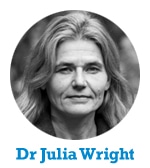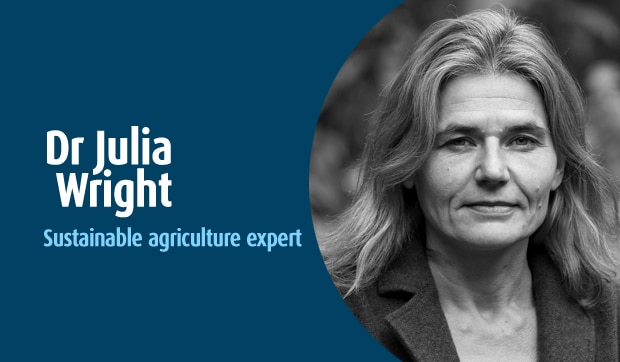Dr Julia Wright reports from the recent Biofach event on why organic organisations make good partners for those serious about sustainability.
As mainstream agriculture in Europe stumbles along from one obstacle and challenge to another – currently scratching its head over flooding, horsemeat, and the relentless but unconsummated drive to increase profit, the organic movement at Biofach takes a timely look at how it can forge new partnerships for growth. Although the annual global trade fair and congress of the International Federation of Organic Agriculture Movement may be slightly smaller and attracting slightly fewer visitors than previous years, it has certainly broadened its outlook in terms of inviting like-minded and supportive, non-organic guests to participate and discuss opportunities to collaborate. There are many avenues for new partnerships – ranging from working with development organisations such as the International Red Cross and the UN’S International Fund for Agricultural Development, to the Fairtrade Labelling Foundation and other certification bodies.
I had come to Biofach partly to present a new partnership, one that formed in the UK two years ago, between one of the oldest organic organisations – Garden Organic (formerly the Henry Doubleday Research Association), and Coventry University.
Universities may collaborate with non-government organisations on specific projects, but it is very rare for them to establish joint initiatives over the long term. However Coventry University is serious in its mandates to work to resolve big societal issues, and food and farming is one of these.
The University had, since the 1980s, seconded staff to work on international research projects with Garden Organic, so it was a fairly obvious move to jointly create the Centre for Agroecology and Food Security (CAFS) in order to take this relationship a step further. CAFS receives core funding from the University, and its staff include seconded researchers from Garden Organic. The Centre therefore benefits from having 30 years of international research experience accrued by both organisations, which enables it to be more eligible for new research funding. With a mission to develop resilient food systems worldwide, CAFS works in both the natural and socio-economic sciences but ensures that it does not stray onto issues that are outside of the mandate of an organic organisation.
A new Masters degree has just been developed that will be taught jointly, with one module taking place on site at Ryton Organic Gardens. There is still some way to go to capitalise on the synergies provided by both organisations, but the future looks promising. No research is objective, and CAFS wears its badge on its sleeve by proactively focussing on agroecological and organic farming approaches as the means to ensuring a healthy population and healthy ecosystem for the future. The fact is that organic agriculture takes a holistic and systems perspective and therefore, when done well, ticks all the sustainability boxes of policy makers. As such, organic organisations make good partners for those serious about sustainability.
With all the misery surrounding mainstream agriculture, it is always a pleasure to mix with people working in the organic movement. They are generally upbeat, imaginative, they care, and they have fun. Its always seemed strange to me that, when we can create whichever type of farming system we wish, we would choose to farm in any other way than organic or agroecological. Why would anyone not want to care, not want to try to produce healthy foods? Although mainstream farming claims to want this, I never encounter them at events such as these that proactively seek ecosystems health. It really is worlds apart, a different paradigm, and I know which world I’d rather live in and hope that it becomes available for everyone.
It’s always seemed strange to me that, when we can create whichever type of farming system we wish, we would choose to farm in any other way than organic or agroecological. Why would anyone not want to care, not want to try to produce healthy foods?
 By Dr Julia Wright
By Dr Julia Wright
Sustainable agriculture expert
Dr Julia Wright is deputy director of Coventry University’s Centre for Agroecology and Food Security. She has over 25 years‚Äô experience in sustainable agricultural applied research and development and is a leading expert in Cuban farming and food systems.











